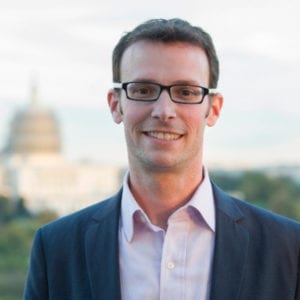In healthcare, the undeniable truth is that impact is measured in outcomes. Communities thrive when health systems and their mission-oriented professionals deliver positive outcomes for both health and life.
The margin for error is small, so hard-won lessons become mantras upon which we build public health programs. For business leaders and organizations seeking to deliver impact, some of these longstanding and universal truths learned from the healthcare experience can prove invaluable.
For example, the knowledge that small, early interventions matter can form the foundation of any social impact program. In healthcare, evidence shows engaging (and subsequently treating) patients early, often, and incrementally can help stave off riskier and more expensive treatments necessitated when patients wait until a condition requires an Emergency Room visit or until it is ‘too late”. Impact professionals that can address or alleviate the root causes of a social crisis or systemic issue before it explodes will often expend less effort and resources quelling the risk.
Similarly, healthcare teams’ understanding that nothing happens in a vacuum is critical for impact-minded leaders. Just as a combination of environmental factors, human decisions, and even treatment protocols can overlap to create, resolve, or exacerbate medical conditions like heart disease, so too can multiple conditions combine to create a larger social ill. Understanding the chemistry of economics and education and more is critical to addressing issues like financial inequity or mass incarceration.
However, the sudden, unanticipated, and abrupt changes brought on by the COVID-19 pandemic have forced the healthcare industry and necessitated a shuffling of priorities and methods to weather the ongoing crisis. Again, there are lessons leaders and impact-driven professionals in other sectors can absorb from this unprecedented healthcare response. Here are four:
1. Build on Solid Ground
COVID has undeniably proven that the health and emotional wellbeing of our nation’s caregivers determines our ability to deliver quality healthcare to everyone else. Applause from people in their homes or billboards showcasing “healthcare heroes” only go so far. The truth is that caregivers are stretched to the breaking point and feel unheard and unsupported by their institutions and communities even as the virus surges again.
This unstable layer beneath our healthcare delivery system should serve as a wake-up call for an entire industry that our system is fragile. Not only from a clinical or financial perspective but a “caregiver” perspective. If we cannot protect those who give care while they are at work so that they can feel safe at home – and do it in a way that is second nature or woven throughout the fabric of our care model – then we are heading for a massive collision with the reality of staff shortages in the coming year and beyond.
To avoid the perils of building on an unsteady foundation, business leaders and organizations across industries must also first evaluate and support their employees before engaging in any impact program.
2. Triage, Triage, Triage
Surges across the country have placed hospitals under enormous strain at different times this past year. Those facing the worst of it have had to make hard decisions about whom to treat and how. In recent weeks, stories circulated about hospitals around the country drawing up criteria for prioritizing patients’ treatments based on age, overall health, and other factors.
Even those systems that escaped tremendous onslaughts of patients have likely made concessions about treating routine illnesses or providing preventive services to conserve resources or slow infection.
Similar challenges are being felt in adjacent areas. Mile plus lines at food banks in Texas and other states have stretched already-thin supplies with homeless shelters, mental health centers, and others also bending under strain. As impact programs seek to serve those facing financial ruin, food insecurity, or other challenges, having a similar triage mentality or prioritization strategy will be important.
3. Protocol as Suggestion
One positive recurring trait demonstrated by healthcare pros throughout the pandemic has been creativity. Whether running IV lines outside of patient rooms to conserve PPE and limit staff exposure, embracing novel needle-free blood collection technologies to reduce staff exposure to COVID-19 patients, or building new treatment centers seemingly overnight, the industry has proven that necessity is indeed the mother of invention.
In many cases, these novel and quick-thinking approaches were devised by modifying longstanding instructions or assumptions. Instead of walking around walls, people – in some cases, nurses and staff holding phones to dying patients’ ears so they could say goodbye to family – ran through them on behalf of their patients, creating new solutions in the process. Similarly, the pandemic knocked down many longstanding regulatory barriers and timelines to expedite treatments, expand telemedicine, and kickstart vaccine testing.
So too, should leaders think outside of the box when seeking to deliver impact within this new normal. Drive-through food banks and laptop donations for remote schooling are just early examples of how organizations are creatively serving new populations and meeting unique needs amidst the pandemic.
4. Catalyze a Coalition of the Willing
Before the virus became political, there was a sense that we were all in the fight together. Hospitals desperately seeking PPE were receiving facemasks from hobby seamstresses, face shields from 3D printing companies, and planeloads of equipment from sports team owners.
The lesson for leaders is that everyone can play a role in impact programs if appropriately aware, inspired, and activated. We must cast the net wider than anticipated, drop down our barriers and instead be unafraid to ask. Impact-driven innovators that make their voices heard, and solutions seen stand the greatest chance for success.
These lessons and others will be vital as the pandemic has amplified a host of new and existing social, economic, and health issues while forcing many more of our neighbors into deeply unfortunate circumstances. Finding a way to make a meaningful difference within this new normal will require creativity, innovation, and determination – three skills demonstrated repeatedly and extensively by medical professionals throughout this year.




































